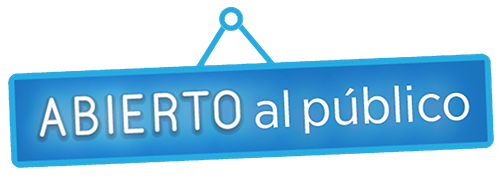
Knowing before writing
At Abierto al Público, we only publish articles connected to our 5 pillar categories and the topic areas reflected in our list of tags. Abierto al Público authors are familiar with the content and expectations of the blog.
It all starts with an idea
In our effort to respect and optimize the time required to write an article, authors send the editor of Abierto al Público a brief explanation of the type of post they would like to write. To generate their pitch, authors should reflect on the following questions:
- What topic do you want to write about?
- How is it related to open knowledge?
- Does the article share access to one or more freely usable resources? (provide details in the pitch)
- Will readers be able to act upon the knowledge and/or tools shared in the article? Explain your response.
The pitch should be no more than 300 words.
Some examples
In the spirit of open knowledge, you will find a variety of article styles in Abierto al Público. As such, authors are encouraged to propose new article structures or draw inspiration from previous posts.
Types of articles and examples
- Introduction to key concepts: articles that are essential to understand the content of Abierto al Público. These are blog entries that we consider key concepts to build and strengthen our audience’s understanding of open knowledge and its relation to social and economic development.
- Step by step guide: articles that provide guidelines to achieve knowledge goals or to promote the dissemination of open knowledge. These are articles that facilitate the understanding of more complex topics related to open knowledge, and that present information in a timely and easy manner.
- Reflections on lessons learned: articles that share insights gained from past experiences in implementing projects and creating knowledge products. This is vital for generating more open knowledge and making decisions that are appropriate and timely for social and economic development.
- Actionable Open Knowledge resources: we share open tools to streamline knowledge transfer, primarily focusing on economic and social development themes.
What do we not publish?
Given the nature of our blog and the IDB’s mission of improving lives in the region, Abierto al Público does not publish articles containing:
- Paid advertising or promotion
At Abierto al Público, we do not publish promotional material from any organization. Our content aims to provide clear added value, to educate, or to reflect a learning opportunity, without a profit motive. - Political endorsement
Articles on Abierto al Público are not aligned with any political party or ideology. The ideas and experiences shared here reflect diverse perspectives, as our goal is to foster dynamic and inclusive conversations. - Closed or paywalled content
In line with our creative commons license, we support the reuse of freely shared knowledge and do not promote content that is inherently closed or behind a paywall.
Seeking to connect with you
We have a contact form to receive article proposals from potential authors. We work to expand the universe of open knowledge and make it accessible to as many people as possible. There is much to be done and there are many involved. Will you join us?
The editorial team:

Authors:
